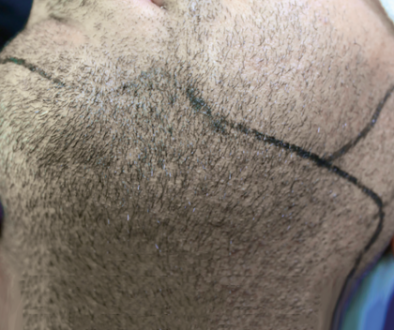Is it Wise to Stop Taking Propecia and Rogaine Hair Loss Treatments after Hair Transplantation?
In this hair loss article, recommended hair transplant surgeon Dr. Parsa Mohebi shares his expert advice regarding the use of medical hair loss treatments after hair restoration surgery.
 Oftentimes I receive inquiries about whether it would be a wise decision to stop using Propecia (finasteride) or Rogaine (minoxidil) after a hair restoration surgery. The fact is, there are risks involved with that decision which include hair loss on the existing, prone to balding hair. Frequently, a second procedure is needed as time moves on, which can be predicted through a thorough microscopic scalp evaluation, also known as a miniaturization study.
Oftentimes I receive inquiries about whether it would be a wise decision to stop using Propecia (finasteride) or Rogaine (minoxidil) after a hair restoration surgery. The fact is, there are risks involved with that decision which include hair loss on the existing, prone to balding hair. Frequently, a second procedure is needed as time moves on, which can be predicted through a thorough microscopic scalp evaluation, also known as a miniaturization study.
Stopping finasteride will have no effect on the hair which has been transplanted, but the risk of losing the existing hair at any time is possible. A proper miniaturization study will show which areas of the scalp are most prone to future thinning. This is important for knowing what may occur over time. To stop finasteride or minoxidil after a hair transplantation surgery is never recommended but, ultimately, it is up to each individual to decide whether they are willing to accept the risk of losing their existing hair or be comfortable taking medicine to maintain a more youthful appearance.
Dr. Parsa Mohebi
—-
David (TakingThePlunge) Forum Co-Moderator and Editorial Assistant for the Hair Restoration Forum and Social Network, the Coalition Hair Loss Learning Center, and the Hair Loss Q & A Blog.
Get Proven Hair Loss Treatments at the Best Prices by visiting our new Online Hair Loss Product Store
Technorati Tags: hair loss, hair transplant, hair loss treatments, hair restoration, Propecia, finasteride, Rogaine, minoxidil, balding, hair transplantation



